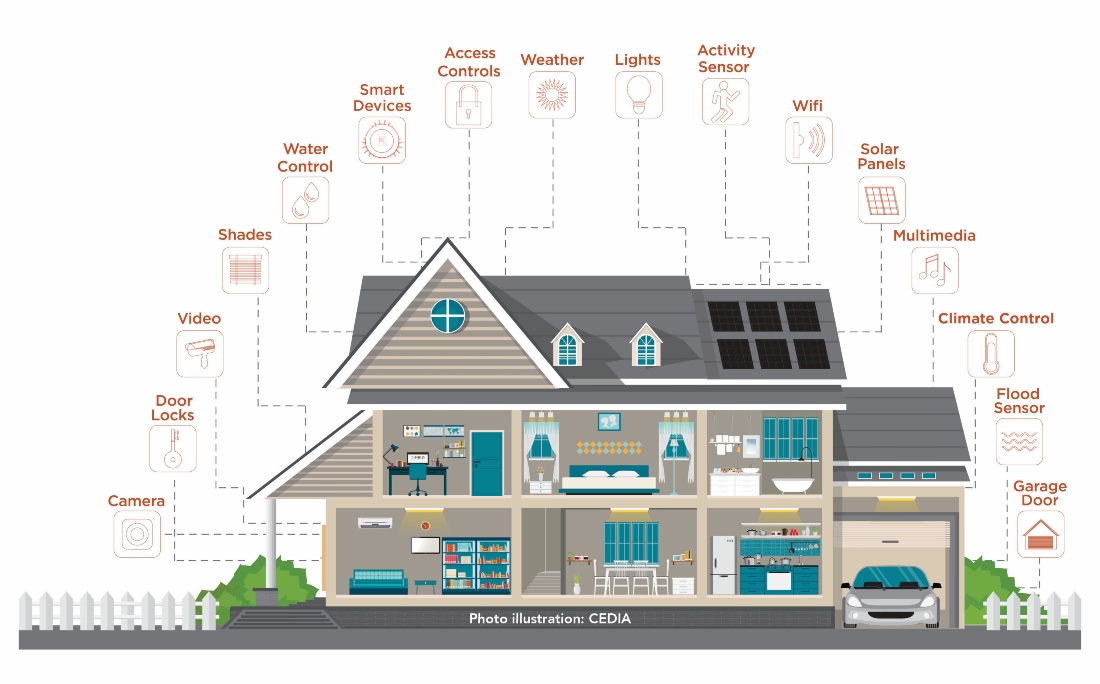Articles
HCC to launch new Smart Building Technology program in the fall
May 31, 2023

This fall, Houston Community College’s Central campus plans to launch a new, innovative program focused to teach students to integrate the multitude of systems people use every day in homes and offices. The program is pending final approval by the Southern Association of Colleges and Schools Commission on Colleges (SACS).
The Smart Building Technology program will allow students to become “integrators” with the knowledge required to install low-voltage controls to manage, monitor and protect residential or commercial environments for home or commercial networks.
“This program is both cutting edge and down to earth,” said Walter 'Matt' Adams, instructor and program coordinator for HCC’s Electrical Technology program. “Some of the systems students will learn to integrate include audio/visual systems, energy management, lighting controls, security cameras, burglar and fire alarm systems, retail and grocery store automation, medical automation and more.”
HCC is one of the first two-year colleges in the nation to offer a comprehensive Smart Building Technology program, which is part of HCC Central’s Electrical Technology program in the Architectural Design and Construction Center of Excellence (COE).
Industry leaders are applauding HCC for initiating the program.
Tommy Tabor, director of Workforce Development for CEDIA, a global membership association serving the smart home technology industry, said his organization “is excited for the launch of Houston Community College’s Smart Building Technology A.A.S degree program and is looking forward to welcoming HCC as an official education partner later this year.”
“The HCC program appears to be the first degree program in the U.S. that puts smart building technology at its core,” Tabor said.
HCC’s Adams noted that “a lot of new technology is coming into this industry, but a lot of the technology is the same as it has been for the last five to 10 years. What is new is the integration of it all, making it all work together, to make people’s lives better.”
“This integration will help save energy by working efficiently, and help the environment to become green,” said Kris Asper, COE dean. “It will also help the local economy.”
Earning potential for graduates, Adams said, is excellent. “As an integrator, you can make as much as you are willing to work, but $50,000 a year is generally the starting salary. But you also can earn a six-figure income if you keep learning and growing in this industry.”
Adams believes becoming an integrator can be a viable career option for students of any age who are “willing to learn, good with their hands and are technology driven.”
“If you are a safety oriented, creative, out-of-the-box thinker with a curiosity for things you don’t know yet, this could be the field for you,” Adams said. “And this is a great option for women. There are a ton of entrepreneurial opportunities once you learn enough.”
Students who successfully complete the 60-hour program will receive an Associate of Applied Science degree. HCC’s 16-week fall semester begins Monday, Aug. 21. Approval by SACS is expected in July.
To learn more, please contact Walter Adams at walter.adams@hccs.edu.
